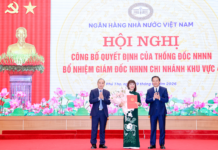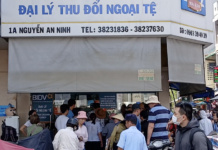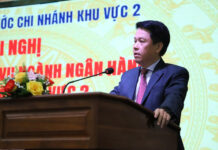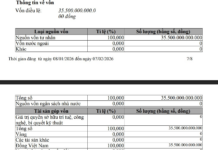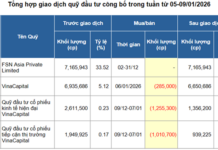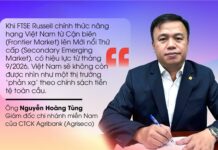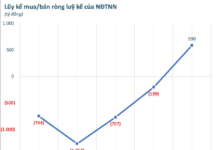Land Law plays a dominant role
On April 15, at the conference to announce the Vietnam real estate market report for Q1/2024 & Q2/2024 forecast, organized by the Vietnam Real Estate Brokerage Association (VARS), Assoc. Prof. Dr. Nguyen Quang Tuyen – Vice Chairman of the University Council and Head of the Faculty of Economic Law, Hanoi Law University, stated that the Land Law plays a major role in the three laws governing the real estate market.
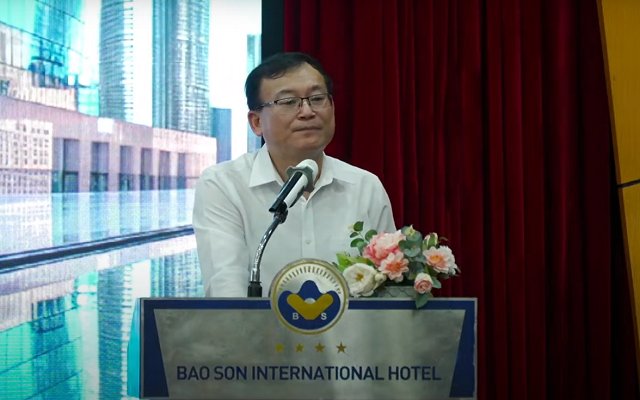 Mr. Nguyen Quang Tuyen speaking at the conference. Source: Screenshot
|
According to Mr. Tuyen, the Land Law plays a major role because when discussing the real estate market, we must first talk about land because it is the resource that creates conditions and premises for the formation of other real estate. Real estate on land and attached to land form a unified whole that cannot be separated.
Regarding the land supply, the primary market (between the State and investors) will maintain and inherit the provisions of the 2013 Land Law, i.e. the State will allocate land with land use fees and lease land, but the new point of the 2024 Land Law is the allocation of land and land lease through land use rights auctions and project bidding with land use to ensure publicity and transparency.
For the form of land lease, as before, either a one-time payment for the entire lease term or an annual payment, in this law, the main form is the State leasing land for an annual rent. The cases that are clearly stipulated in the law are the ones for leasing and paying a one-time payment for the entire lease term.
“Why is it like this? If the rent is paid in a lump sum, it will be very difficult for localities to adjust the land price list in the future. In addition, our main focus is on small and medium-sized enterprises, so their financial capacity is limited. Therefore, it is difficult to access the form of one-time payment and the main form will be paying an annual land rent”, Mr. Tuyen answered the question he posed himself.
According to the expert, there is a new point in this law, that is, for enterprises and economic organizations that are leased land by the State and pay an annual rent, they can mortgage or contribute capital with their own assets on the land and land use rights in the annual land lease contract, and even transfer assets owned by the enterprise. Meanwhile, the previous law only allowed mortgaging or contributing capital with assets on land and only enterprises that paid a one-time payment were allowed to mortgage assets on land and land use rights.
“This is a great relief for businesses in the field of land”, Mr. Tuyen said about the impact of the law.
Agricultural real estate will be more dynamic
Mr. Tuyen said that another new point is that organizations and individuals who are not directly involved in agricultural production are allowed to receive the transfer of agricultural land use rights from households and individuals who are directly involved in agricultural production. Previously, domestic economic organizations were only allowed to receive transfers of agricultural land use rights, except for rice-growing land and protective forest land, special-use forest land of households, and individuals directly involved in agricultural production. Now, these regulations have been abolished.
Another change is that economic organizations with foreign investment are now allowed to receive transfers of land use rights from households and individuals, which was not allowed in the past.
“This will make the agricultural real estate segment more vibrant, as it is the slowest-growing real estate market”, the expert said, adding that this will give those who are not directly involved in agricultural production but have the conditions, capital, and organizational methods the right to access land and to organize, arrange, and guide farmers to develop a commodity production agriculture.
Regarding the concern that if this is allowed, there will be a situation where enterprises will acquire agricultural land, then find ways to divide it into lots, sell land, and then change the land use purpose, the expert said that the law has included a condition that non-agricultural production organizations that receive the transfer of agricultural land use rights must have a production, business, and land use plan that is appropriate and effective.
In addition, the 2024 Land Law allows Vietnamese people living abroad who have Vietnamese nationality to have the same rights and obligations to use land as individuals in the country. This creates an incentive for the overseas Vietnamese community to have the right to access land in the country and increases the demand for real estate thanks to this group’s abundant financial capacity.
Regarding compensation, support, and resettlement when the State acquires land, the biggest obstacle currently is that the State acquires land for socio-economic development in the national interest, public interest, but in reality, there are many lawsuits and disputes.
According to Mr. Tuyen, the law will stipulate 32 cases, specifically if one of these cases occurs, it will be determined that the land was acquired for development in the national interest, public interest, which will reduce the number of lawsuits.
Regarding land prices, the law will abolish the price frame regulation so that the determination of land prices will approach the market principle and give full authority to the provincial-level People’s Committees to stipulate the land price list and specific land prices.
“The State determines land prices according to the market principle, not the market price. These are two different concepts. The State will never determine land prices according to market prices, because that would be very difficult as it would be impossible to know whether the market price is inflated or whether it is being manipulated by a certain group of people”, the expert emphasized.
Another important point in the principle of determining land prices is that land prices must ensure the harmonization of interests of all parties. A price level that is acceptable to the State, the land user, and the investor.
Moreover, the land price list stipulated by the provincial-level People’s Committees will be applied annually, not every 5 years as it is currently, to ensure that it is in line with the movement of land use rights in the market, and it must be approved by the provincial-level People’s Council before it is issued. This table will be used to calculate land use tax for the land area within the limit of households and individuals; to calculate land use tax, fees, and charges related to land; and to calculate compensation for damages caused to the State.
Specific land prices will also be stipulated by the provincial People’s Committee. This means that when a decision is made to acquire land for a project at a certain point in time, the specific land price will be determined at the time of the decision to acquire the land, in order to calculate compensation for those whose land is acquired, and will be determined by an independent consulting organization. Subsequently, a Price Appraisal Council will review the fairness of the price before it is submitted to the People’s Committee of the same level for approval. This is done based on the principle of ensuring independence between the land price consulting organization, the Land Price Appraisal Council, and the body that determines the price, in order to avoid the “friendly troops, enemy troops” situation.
The valuation methods in the Land Law will include the income method, the comparison method, the excess profit method, the K-factor method, and currently there are only conditions to implement these methods, but the specifics must await detailed regulations by the Government.
Real Estate Business Law cleanses the market
Regarding the 2023 Real Estate Business Law, according to the expert, the philosophy of this law is to both remove obstacles and cleanse the market, ensuring that the market develops more professionally.
The cleansing factor is reflected in the fact that from January 1, 2025, real estate brokers will not be allowed to operate independently, i.e. they will not be allowed to practice freely. If they have a certificate and go home to open a brokerage office, it will not be allowed. They must join a brokerage company or real estate trading floor.
Next, the commission and brokerage fees for real estate must be transferred, not in cash, in order to control income and taxation, gradually eliminating the “cash civilization” and preventing corruption.
Furthermore, the information about real estate must be made public before it is put into business because the information in the market has long been disproportionate, easily prone to virtual factors, and the actual transaction price must be stated correctly in the contract, avoiding the case of buying and selling a house for 5 billion VND, but making the contract for 2.5 billion VND to evade taxes.
Another point is that this law prohibits the division and sale of land into lots up to and including urban areas of type III. Special-type, type I, type II, and type III urban areas are all prohibited.
In terms of “loosening” the






